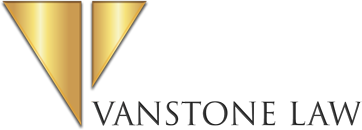If you are arrested in Canada, you have certain rights that are constitutionally protected by the Canadian Charter of Rights and Freedoms. These rights are designed to protect you from abuse of power by the police and to ensure that you are treated fairly throughout the criminal justice process.
Here are some of your most important rights if you are arrested in Canada:
- The right to know why you are being arrested or detained. The police must inform you of the reasons for your arrest or detention as soon as possible.
- The right to remain silent. You have the right to remain silent when questioned by the police. Anything you say may be used as evidence against you.
- The right to speak to a lawyer. You have the right to speak to a lawyer of your choice as soon as possible after your arrest. The police must give you a reasonable opportunity to do so.
- The right to receive and review the evidence against you before entering a plea in court.
- Right to a fair trial. If you are charged with a crime, you have the right to a fair trial before a judge or jury. This includes the right to be represented by a lawyer, the right to call witnesses, and the right to cross-examine the witnesses for the prosecution.
In addition to these general rights, you also have certain specific rights if you are arrested in Canada. For example, if you are under the age of 18, you have the right to have your parents or guardian present when you are questioned by the police. You also have the right to contact your parents or guardian as soon as possible after your arrest.
If you are arrested, it is important to be aware of your rights and to assert them if necessary. You should not say anything to the police before you have spoken to a lawyer. If you cannot afford a lawyer, you may be eligible for legal aid.
Here are some tips on protecting your rights if you are arrested in Canada:
- Stay calm and polite. Even if you are angry or upset, it is important to remain calm and polite when dealing with the police. This will help to ensure that you are treated fairly.
- Know your rights. Before you say anything to the police, it is important to know your rights. You can read about your rights on the website of the Department of Justice Canada or from a lawyer.
- Assert your rights. If you are being arrested, you should assert your right to remain silent and insist on your right to speak to a lawyer. You should also tell the police that you know your rights.
- Do not resist arrest. If you resist arrest, you could be charged with an additional crime.
If you believe that your rights have been violated by local police, you may be able to file a complaint with the police or with the Public Complaints Commission for Saskatchewan. For complaints involving the RCMP, contact the Civilian Review and Complaints Commission for the RCMP. You may also be able to sue the police for damages.
This article is for informational purposes only and is not legal advice. Contact us today to discuss your specific situation.
